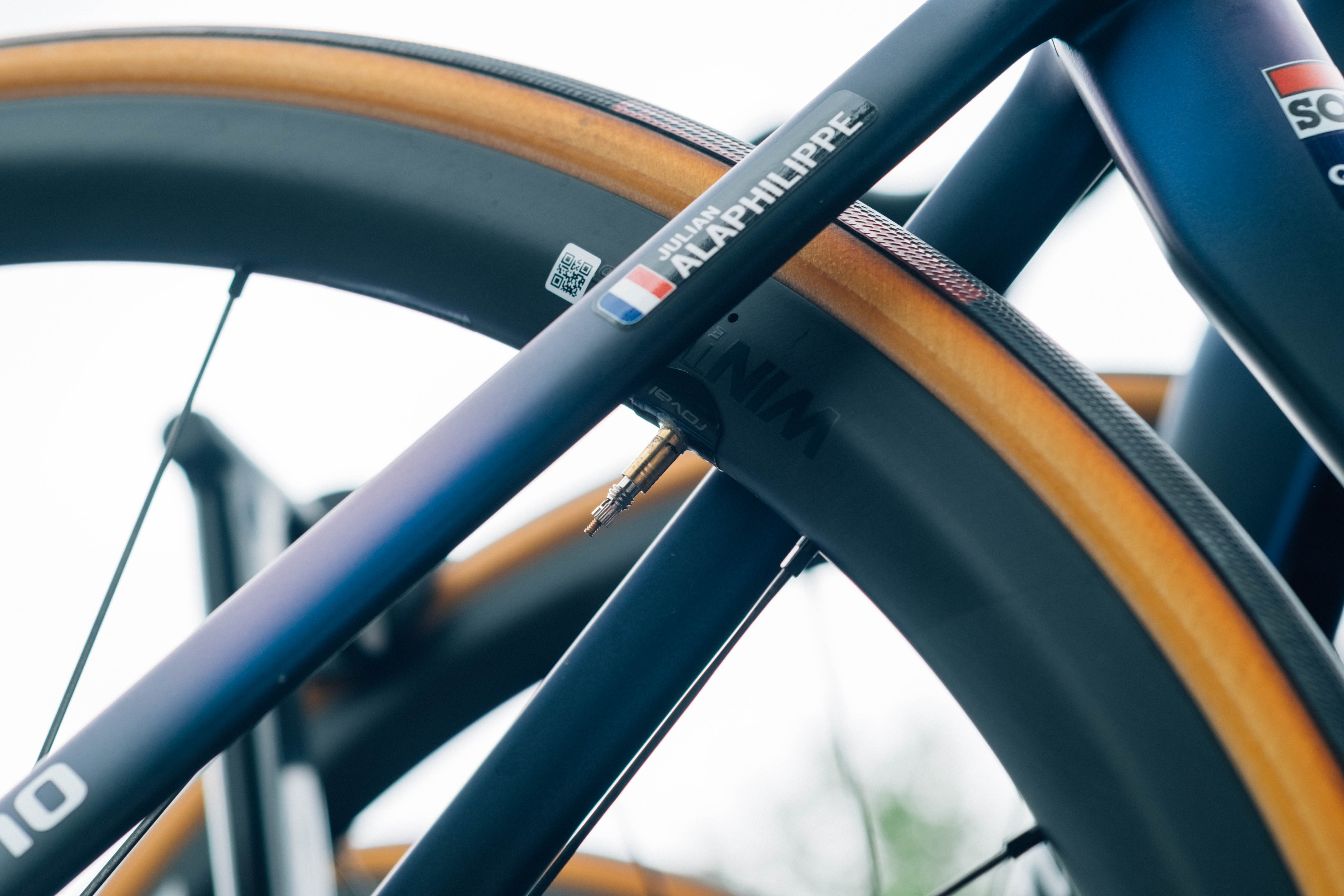
January is an oddly frenetic month in the world of professional cycling. Pro riders the world over (well, those that aren’t at the Tour Down Under) typically descend on the sunny roads of Spain for their respective winter training camps to tune up the legs, and perhaps more importantly to dial in their bike setups for the new season. Many teams will be on new bikes, some teams will have fresh groupsets, but even teams like Soudal-Quickstep, whose sponsorships are unchanged, still spend time wringing out every last watt from their setup.
Cyclingnews’ Head of News, Stephen Farrand, caught up with Soudal Quick-Step’s Technical and Development Manager, Nicolas Coosemans, as well as Specialized's Gian Paolo Mondini to discuss bike setups for the coming year.
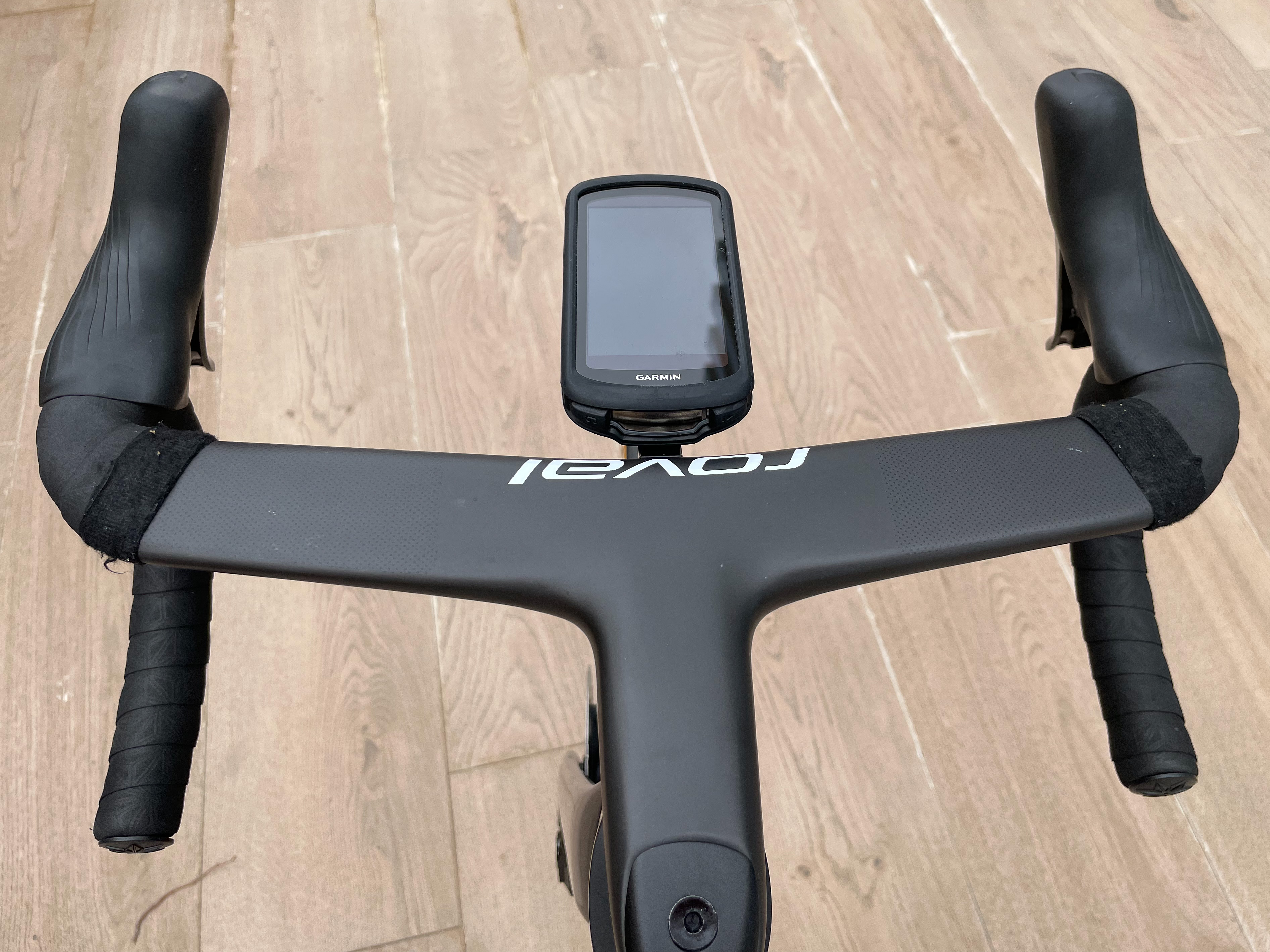
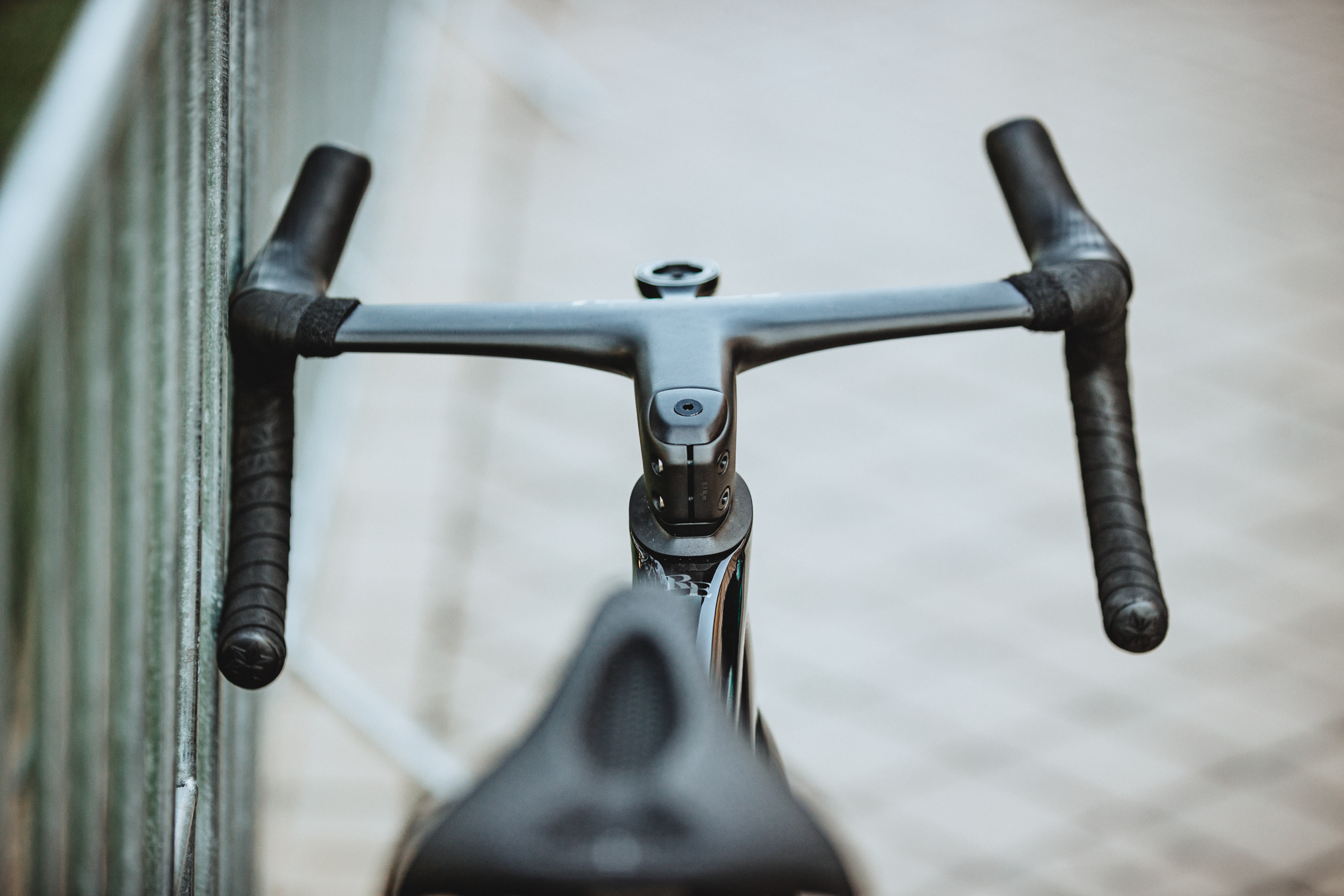
Straight levers for all, straight away
Given the recent UCI rules banning the extreme turned-in lever position that we saw many riders including Remco Evenepoel, using last season, the first thing we noted was that the bikes are all already set with far straighter levers.
“We swapped everybody, or more or less everybody, to the new position, [because of] the new rule in December, so they get used to [it], because from today on the rule will be gone. So it's for everybody. We preferred to do it then so they could get used to it”, said Coosemans.
Given that the new rule was met with considerable disdain from some riders, with Lotto Dstny’s breakaway specialist Victor Campanaerts labelling it “bullshit”, we asked if the riders were happy to make the switch to straighter levers immediately in training, despite many of them not racing (and therefore subject to the UCI rulebook) for some weeks or months yet.
“It went actually smoother than we were thinking," Coosemans said. "They're not going to be happy, but at the end, we explained and safety is also important, and we think it will help.”
The safety aspect that Coosemans touches on relates to the points raised by Adam Hansen and the CPA, who are in favour of the ban on the grounds that it causes unnecessary stresses on bars, potentially leading to cracks and accidents in the peloton.
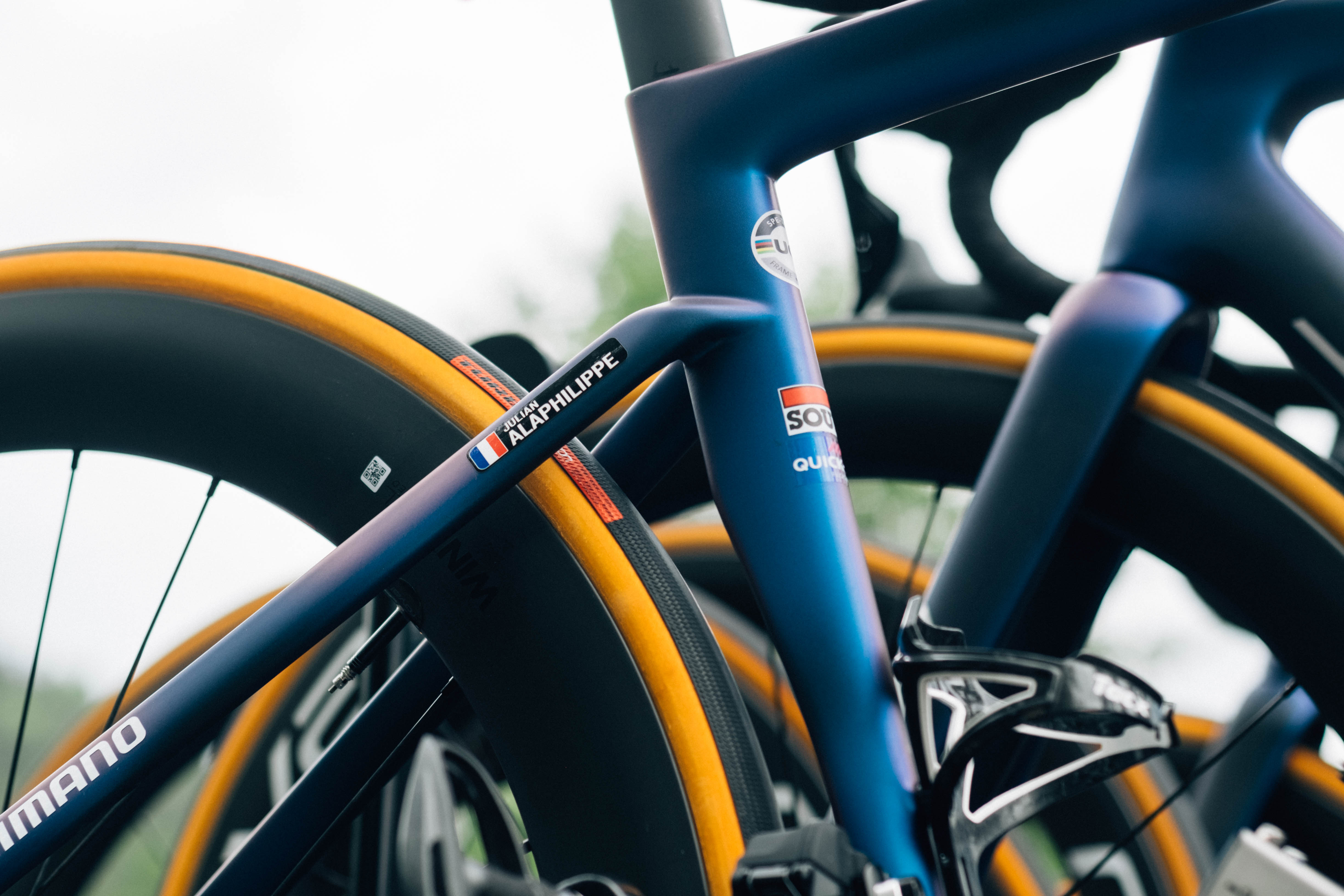
Tubes over tubeless
One thing last year that was apparent while walking the various race paddocks was that QuickStep were primarily using inner tubes, despite Specialized itself, the wheel and tyre sponsor for the team, insisting that tubeless (or 2Bliss, to use the marketing jargon) is the optimum setup.
When asked if this was to change this year, the answer was very much a no.
“It's exactly the same bike that we finished the 2023 season with,” Coosemans informed us of the Soudal Quick-Step tyre choice, meaning 26mm, cotton cased Specialized Turbo Cotton tyres and latex inner tubes.
Naturally the question is why not tubeless, to which the answer from Coosemans was:
“It will come. It’s a project we are working on”.
Bora-Hansgrohe, who also race on Specialized, were seen testing a 'wet' version of a 28mm Specialized tubeless set-up in Mallorca. One source told Cyclingnews that the riders are happy with the 'wet' tubeless but work is still need on the 'dry' tubeless tyre, so that riders are 100% happy to race on it.
Mondini said of Soudal's tyre choice: “At the moment, the fastest solution we have is on clincher. So cotton tyres now. They give us better performance. So we keep going with it.”
This is in contrast somewhat to the Specialized marketing material, which moved away from the promotion of inner tubes with the launch of the Rapide CLX II and Alpinist II wheels. We wondered if it was also a safety issue, in terms of puncture protection, but this was met with an “it depends on the type of puncture you get” from Mondini, so it remains unclear.
It does appear that tubeless is something that Specialized and its teams are working towards but all is not yet perfect for demanding pro racers.
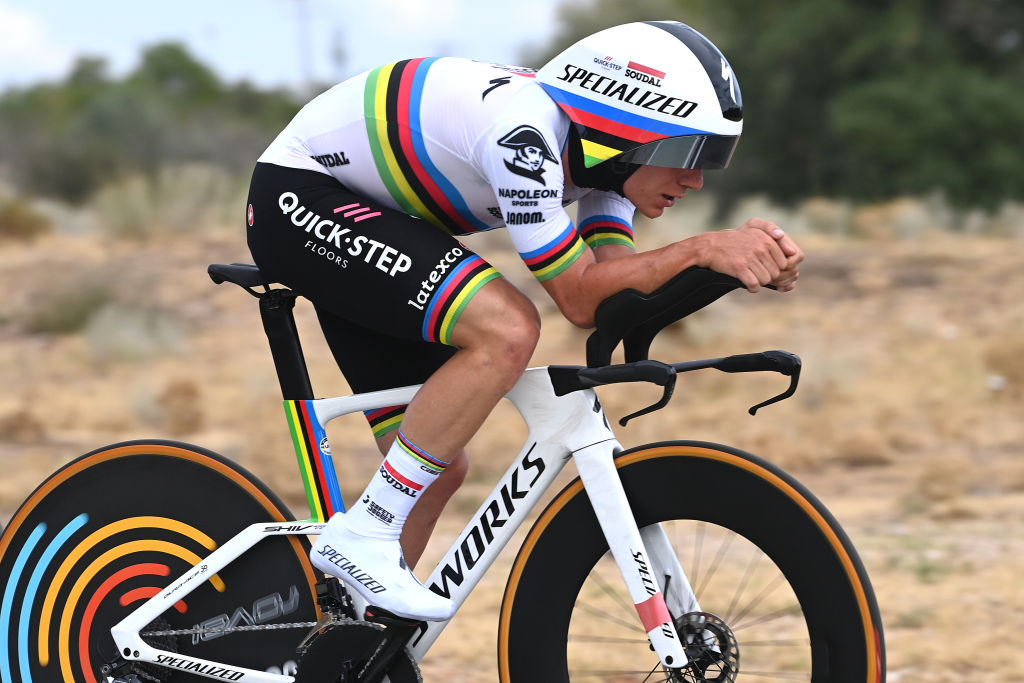
Optimising Remco’s TT bike
As world time trial champion, Remco Evenepoel has a pretty dialled setup, but that doesn’t mean improvements can’t be made.
“It's already hard to change something on Remco because he's super aero. So we did some small changes; shorter cranks…So 165mm…And also the handlebar went five millimetres lower. So it's quite a bit because the saddle went five millimetre up. So it's a gain of one centimetre, let's say, which makes some difference,” explained Coosemans.
Mondini added that these changes have been made in search of better efficiency at higher cadence for the Belgian superstar:
“When he's going full gas, you can race better, so probably he's gonna get a better efficiency on that [crank length]. And now he's testing also on the road bike so maybe [it] can help him a little bit on high cadence and on, you know, hard climbs.
"It can give him the chance to go faster with a big cadence and as is testing now. So let's see.”
While Coosemans noted that Josh Tarling made great gains in his TT setup last season, he suspects that the Ineos rider will also be approaching a nexus of efficiency and aero benefits, and so will see smaller strides this season.
“I think we saw already last year with Tarling that he did some bigger steps, so for them also, they will come to a moment that it will be with smaller steps.”
When asked if he thought Remco’s time trial position was safe, the response was affirmative from Coosemans: “It is for sure; he is used to it. He's on the bike a few times a week [in his TT position] so those guys are used to it.”







